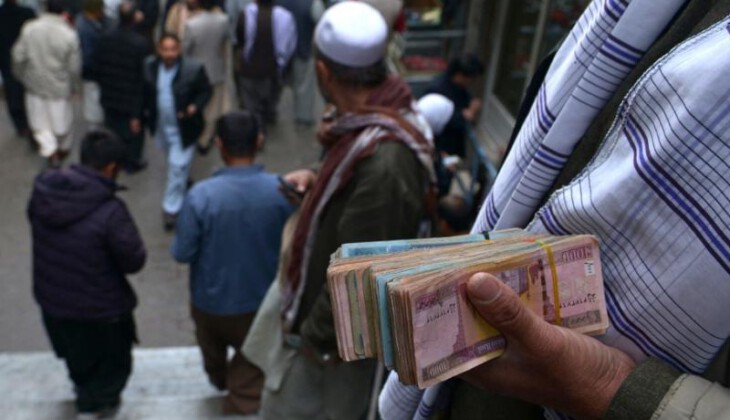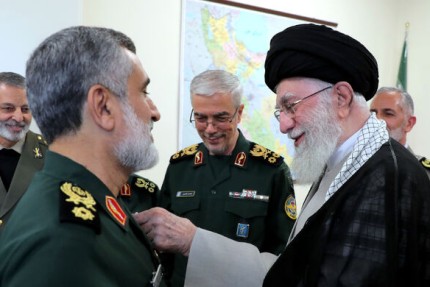Editor’s note
The US Green Light Over Printing New Banknotes for the Taliban

During the post Afghanistan downfall, the US changed from an active to a passive reactionary with its most effective tool i.e., imposing sanctions.
But the importance of Afghanistan and the international political changes has led the US to reenter the issue of Afghanistan.
The trips and the negotiations of Tom West, the US special representative for Afghanistan affairs and also negotiations of the top US intelligence officials with the Taliban all claim that the US is to resume its active presence in Afghanistan.
Unlike what the US officials claim that they have cut ties with the Taliban, it appears that there are information and intelligence exchange going on between Kabul and Washington. Printing new banknotes ordered by the Taliban government is a large-scale attempt which requires Washington’s consent.
No country would be willing to print new banknotes for the Taliban government without the US green light and more importantly, all the banks in Afghanistan are sanctioned and how could any money be transferred to this country without the US permission?
The US special representative has simplified the job for the analysts and in a virtual meeting he said that the US has permitted bank transfers to Afghanistan, one of which was the cost of printing new banknotes that was paid by the Afghanistan central bank.
With this remark, Tom West said that the Kabul -Washington interactions continue behind closed doors. But the they are not too many at the moment and they are more for showing good will purposes between the two sides.
The serious question is how would the US benefit from this?
With what kind of agreement have they come to terms for this permission? and
What would the US receive in return from Taliban?
All of this when we know that the US is unreliable!
Comment
- Ali Mattar’s Significant Explanations on Hochstein’s Trip and US and Israel’s Conditions
- Would the Hamas Movement Come to an End with the Martyrdom of Yahaya Sinwar
- The Psychological Warfare of the Zionist Regime and the Need for a Credible Narration
- October 7th and a Return to the Zero Point/Why Israel is Thrown Back 70 Years
- The “Honest Promise 2” operation and its Diplomatic َAppendages
- Ali Mattar’s Significant Explanations on Hochstein’s Trip and US and Israel’s Conditions
- Would the Hamas Movement Come to an End with the Martyrdom of Yahaya Sinwar
- The Psychological Warfare of the Zionist Regime and the Need for a Credible Narration
- October 7th and a Return to the Zero Point/Why Israel is Thrown Back 70 Years
- Leader awards Fath badge to Gen. Hajizadeh for missile op
- The “Honest Promise 2” operation and its Diplomatic َAppendages
- Gains of Pezeshkian’s Visit to Qatar /Success of the Public Diplomacy
- 5 key points on the outcome of Iran’s attack against the Zionist regime
- Field Facts of the War on Lebanon/ The realities as They Are
- Some Tips on the Escalation of Clashes Between Lebanon and the Zionist Regime
- The Opportunities and Challenges Facing Pezeshkian’s Trip to New York
- Sana’a Possesses Modern Military Techniques and Technologies/ Details of Yemeni Advanced Missiles
- The Aim of Attacking Lebanon was a Targeted Assassination of the Civilians Not the Hizballah Forces
- Ali Mattar’s Significant Explanations on Hochstein’s Trip and US and Israel’s Conditions
- Would the Hamas Movement Come to an End with the Martyrdom of Yahaya Sinwar
- The Psychological Warfare of the Zionist Regime and the Need for a Credible Narration
- October 7th and a Return to the Zero Point/Why Israel is Thrown Back 70 Years
- Leader awards Fath badge to Gen. Hajizadeh for missile op
- The “Honest Promise 2” operation and its Diplomatic َAppendages
- Gains of Pezeshkian’s Visit to Qatar /Success of the Public Diplomacy
- 5 key points on the outcome of Iran’s attack against the Zionist regime
- Field Facts of the War on Lebanon/ The realities as They Are
- Some Tips on the Escalation of Clashes Between Lebanon and the Zionist Regime




